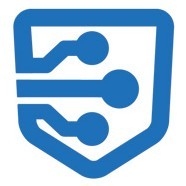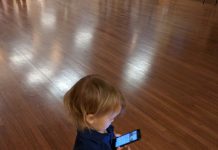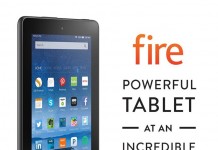 Pocketables is one of the longest-established mobile device and portable digital technology websites and online magazines, in business since 2006. Its readership is one of the more loyal, dedicated, and better informed in the mobile device space, so their current usage habits and opinions regarding tablets and mobile tech are pretty representative of high-end leading-edge users as a whole. And when current editor-in-chief John Freml decided to poll the readership on this topic a short time ago, he came up with some fairly pronounced findings.
Pocketables is one of the longest-established mobile device and portable digital technology websites and online magazines, in business since 2006. Its readership is one of the more loyal, dedicated, and better informed in the mobile device space, so their current usage habits and opinions regarding tablets and mobile tech are pretty representative of high-end leading-edge users as a whole. And when current editor-in-chief John Freml decided to poll the readership on this topic a short time ago, he came up with some fairly pronounced findings.
“Depending on the person you talk to, tablets are either the best thing since sliced bread, or they are on their way out like the dinosaurs,” Freml says. And, he adds, “Pocketables readers responded to our poll in great numbers.” The readership reported, though, that: “only 3.33 percent of people said that tablets were a primary computing device.” Reading, meanwhile, rated as the highest single usage, at 19.17 percent of usage, followed by video consumption with 17.92 percent, gaming with 12.92 percent, and music consumption with 10.42 percent.
This certainly feels like a more solid reflection of real reading habits on tablets than some other reports I’ve read lately, although it doesn’t seem to capture the use of tablets as writing devices that Wattpad and other portals have recorded. And the whole distinction between tablets and laptops may become more nebulous anyway if Microsoft succeeds in pushing the Windows 8 tablet/convertible form factor far enough.
However, I’d also be interested to see how this factors into the kind of usage habits survey that show people spending more time on their tablets and mobile devices than on their PCs. Primary computing in itself may become an increasingly less central function as people’s needs and habits evolve and the mobile offerings that cater to them develop.
































I didn’t use my tablet for productivity (I am guessing Candy Crush doesn’t count) until I bought a bluetooth keyboard for it. I just type much more quickly, with fewer mistakes with a traditional keyboard than the on-screen keys.
I myself dictate most of my email on my iPad. Voice recognition has a way to go, so I must clean up plenty of errors, but it’s still less fuss than messing with a bluetooth keyboard. No problem with Susan and others using physical keyboards! But for me, the iPad can be huge as a productivity machine. If the rumored iPad Pro materializes with a 12- or 13-inch screen and if the voice recognition and software improve and the price isn’t too outrageous, then I’ll do an even higher amount of my work on a tablet.
I think we really need to define productivity more accurately before we can truly determine if tablets are used for productive endeavors. And compare it to how people use Desktop/laptop computing devices. And where.
Anecdotal: My usage patterns for work related computing are very different from personal usage. I would estimate that 75% of all my home/personal computing ( tablet, desktop, laptop, etc.) is “media consumption” but at work – none of it.
Captain Obvious strikes again. Of course tablets are used mainly for content consumption. They’re fundamentally ill suited for any kind of creative work. And no, please don’t tell me about “convertibles”. Those are essentially just crappy laptops. Anyone remember netbooks? No? That’s why. Because by trying to straddle the line they ended up sucking at *everything*. Less than 5 years down the road, they’ve already been forgotten…
And come to think of it, tablets aren’t all that great at content consumption either. It’s comfortable to sit in bed with one browsing your Twitter timeline, but try sharing a link with a friend over instant messenger and you’re going to curse your life. No, they’re just toys, and while toys have their place, I’m always going to want a full-size workstation for anything but the most casual computer use. And judging by that survey, so does mostly everyone else.